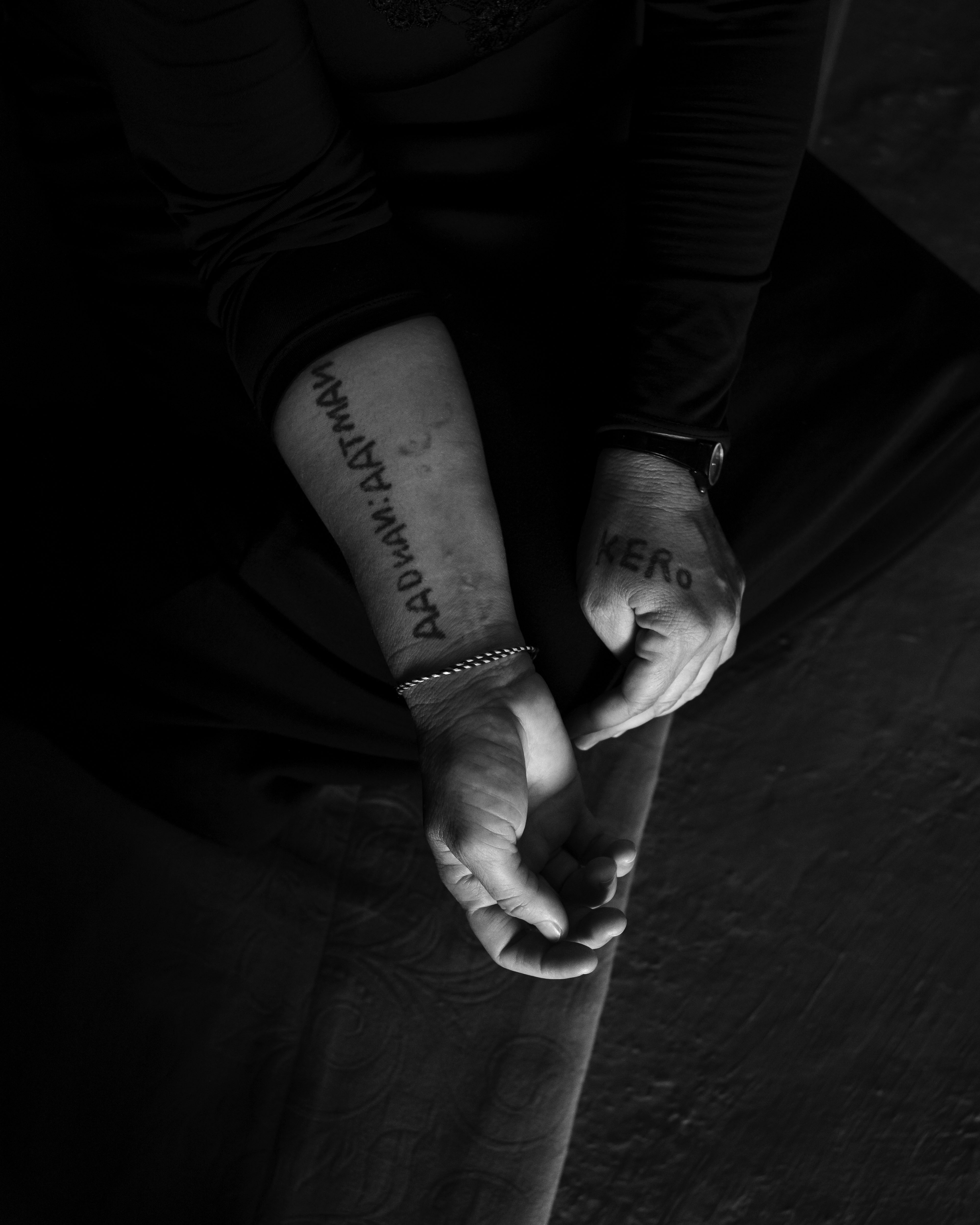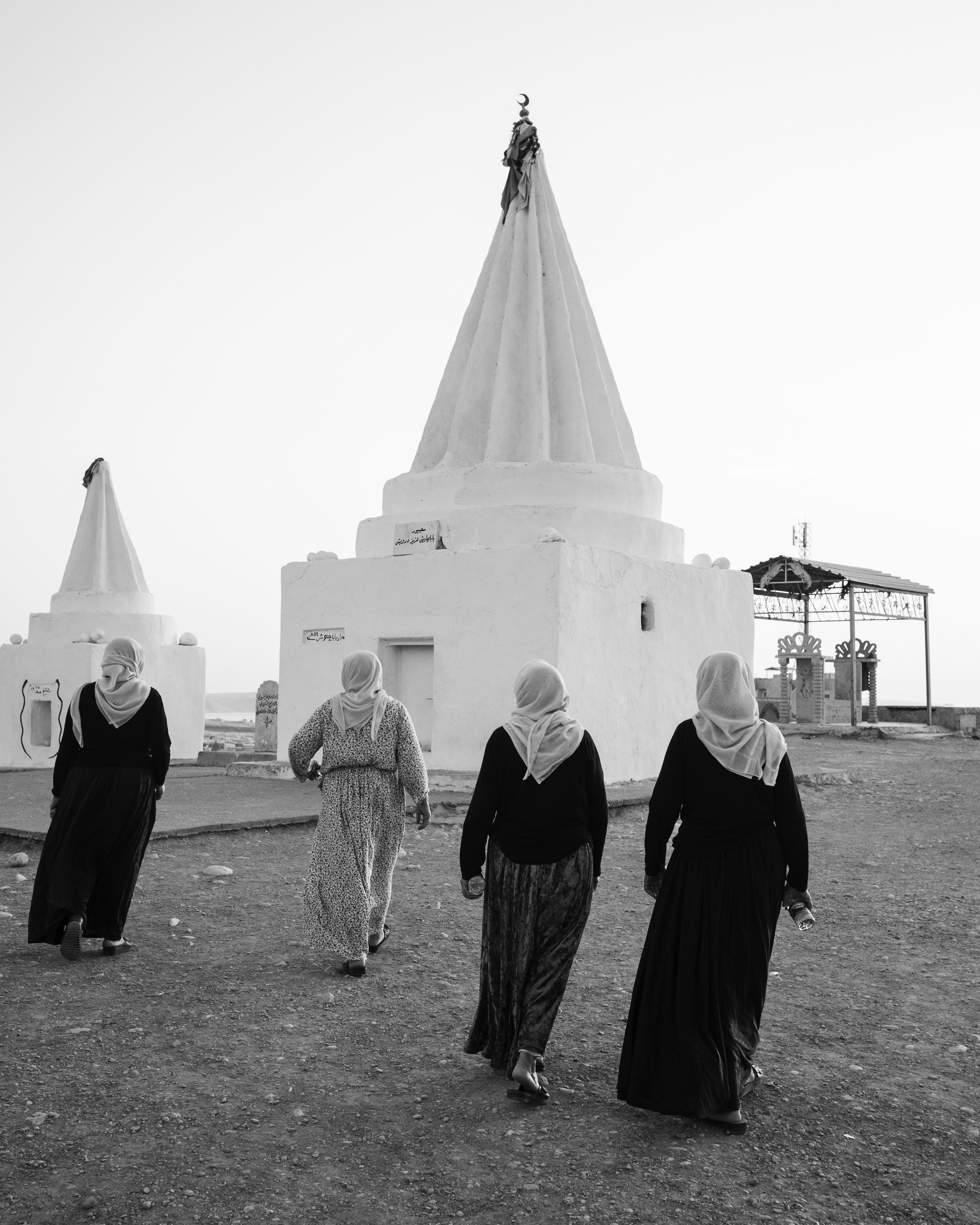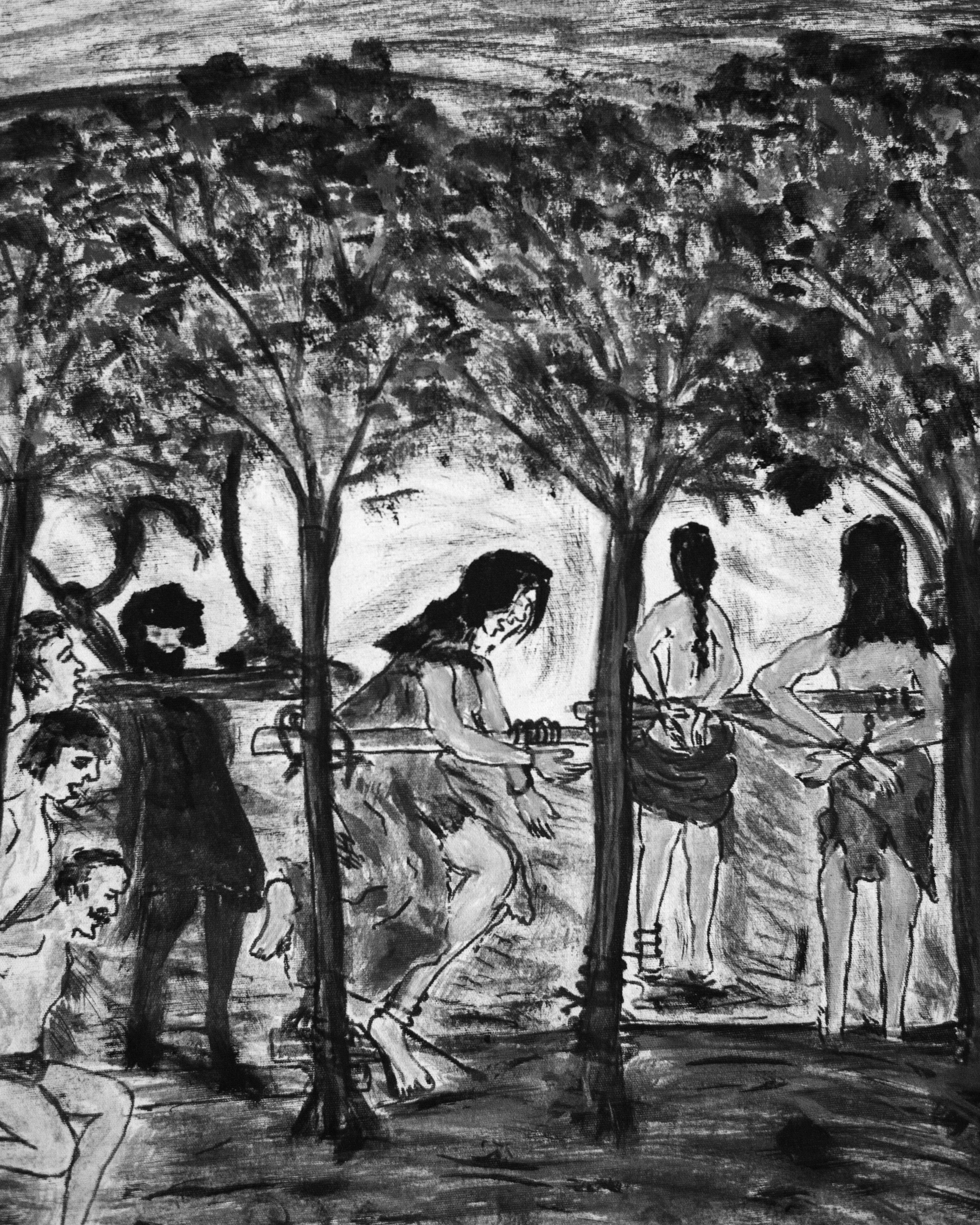Like thousands of other Yazidi women in recent years, Layla has encountered hostility and endured cruelty. Her entire family faced grave danger. Read this account so that Layla’s story and her appeal to the world may be heard.
I am thirty-four. I lived with my husband and our four children in Sinjar District, Nineveh Province. My husband had a job, we had a car, the children went to school. We lacked for nothing.
One day, militants bearing black flags descended on our village. They were soldiers of the so-called Islamic State.
Not even in our darkest nightmares could we have imagined something like this happening to us. Not me, not my family, not our neighbors. Never did I think anyone would tear me from my family by force. They took my husband and our three sons. I have not heard from my husband in five years. I do not know if he is still alive.
Photo: Karol Grygoruk
I was kidnapped with my daughter and tortured. All Yazidi women were subjected to this. We were a commodity, our bodies to be bought and sold.
I was pregnant when they abducted me. I gave birth to a daughter in captivity. I do not want to revisit what I endured while in bondage.
I was released. In fact, I was bought out, along with both my daughters, for $30,000.
This story is not just mine. To whatever degree we were subjected to cruelty as captives, it is a common experience Yazidi women have suffered.
Some women say the difference between enslavement and freedom is that when you are free, nobody rapes you, nobody buys and sells your body like merchandise. Some women have nothing to return to after captivity. Not even a tent. They have no family left—their loved ones were murdered or still being held prisoner.
I have no money to feed the children. It is difficult. Because of what was done to us, I have the feeling that in the eyes of others, we are not human.
Our husbands were taken from home by force. After I was released, I cared for five children alone—two are my children, the other three are children of my husband’s siblings—with nothing.
This is what our life looks like. A state of stagnation.
I wished that our bombed-out houses could be rebuilt. Or that we could go away, settle elsewhere. Here, the sense of threat is ever-present.
I am responsible for five. Children. That I am raising in poverty.
I want my voice to be heard. Yazidi women who were freed from captivity and remain in Iraq need help. They need money. There are dozens of orphans without family, without siblings, living in our tents. These children need food, they need schools to go to.
Nadia Murad’s Nobel Peace Prize lecture:




